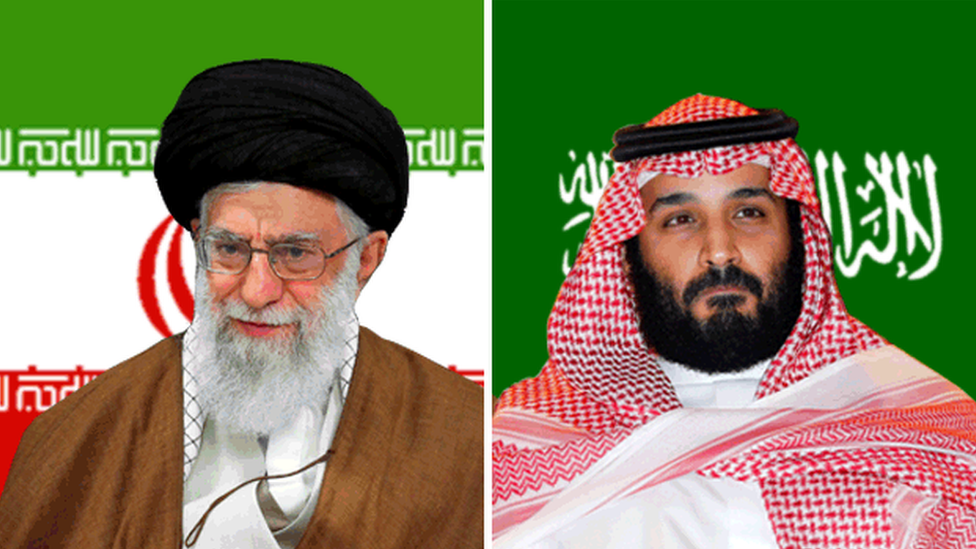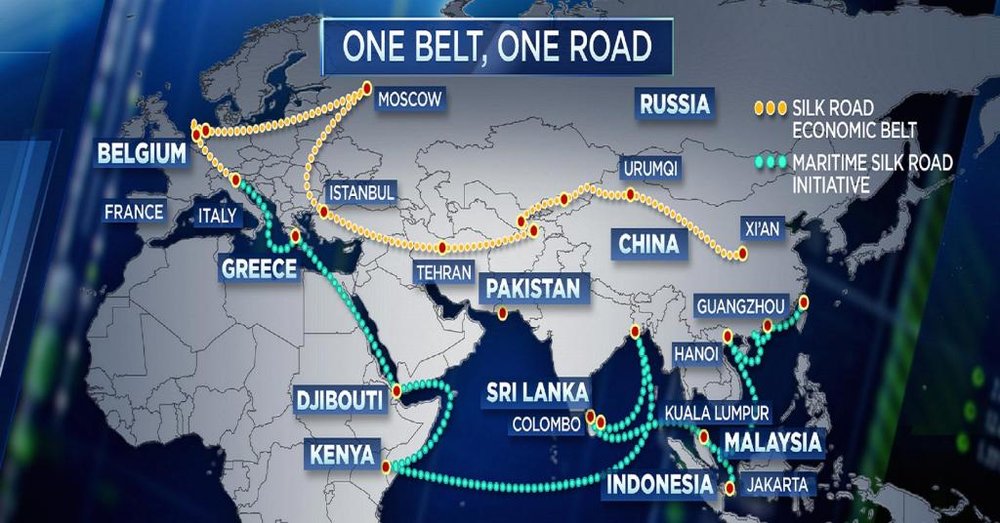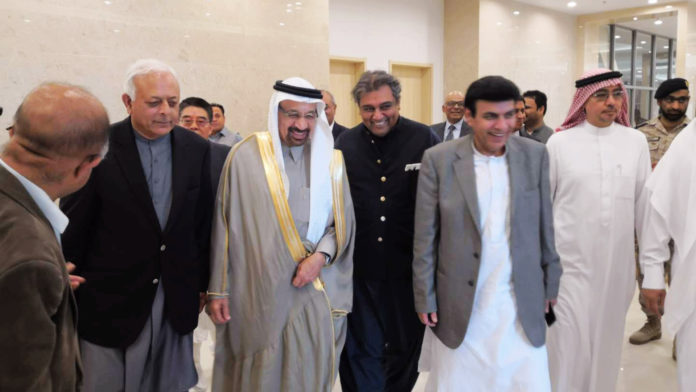The CPEC project once again came in lime light during Prime Minister Imran Khan’s visit to United States. It was evident that there was some confusion and perhaps rivalry and all sort of other reasons why Pakistan was not able to cash out its important geographical location. Anyhow, amazingly president Trump was convinced regarding the importance of Pakistan for many reasons and on the top of that, he offered mediation for Kashmir issue that was a huge blow to Indian foreign policy and specially to Modi. After so many decades, this is first time that a significant statement came out of white house so clearly regarding long standing Kashmir issue.
To me, this all happened due to importance of Pakistan’s key geographical location and kicking off the strategic CPEC project with China.
Pakistan’s role has been seen as a real peace deal mediator in Afghanistan and it was clearly admitted at various levels during prime Minsters US visit. Indeed, Pakistan has made significant and serious efforts in order to bring all parties to negotiating table. On the overhand, Indians find themselves nowhere in this paradigm shift. There is no role for Modi’s regime in ongoing Afghan peace deal. That’s only due to importance of the progressive CPEC project and Chinese and Russian interest in Pakistan lately.
The One Road One Belt project was initiated by Chinese president Xi Jinping on 15 May 2013 in a summit held at Beijing. The initiative was all about building massive infrastructure, mostly around transport and energy sectors: roads, bridges, gas pipelines, ports, railways, and power plants. Proposed by Xi Jinping, the program is an estimated $5 trillion infrastructure spending spree that spans 60-plus countries across Asia, the Middle East, Europe, and Africa. One of the flagship projects of One Belt One Road is the China Pakistan Economic Corridor (CPEC), signed in April 2015 at Islamabad between both leaderships of China and Pakistan, for which China will be spending $56 Billion plus investment for inter connectivity, aiming additionally, to improve the living standards of millions of people in the region. This will be achieved through increased earnings, job creation and higher industrial production, year on year.
CPEC is progressing at full scale regardless of whatever is happening inside Pakistan’s politics and around the region. Highest level of commitment was pledged from the ruling establishment of both China and Pakistan to finish the CPEC project within the prescribed time frame. In the present situation now, when region is predominantly moving towards a strategic paradigm shift in terms of foreign policy, economics and power politics, CPEC offers a great opportunity for the regional and remote players to come and join this multi-Billion-dollar project for better connectivity and trade.
In late 2018, another giant leap was observed when Saudi Arabia expressed its willingness to join CPEC project. The visit by Saudi Arabia’s Energy Minister Khalid A Al-Falih to Gwadar port for the inspection of the site allocated for a multibillion oil refinery in the port city revealed that Saudi Arabia and Pakistan are giving the final touch to reaching on an agreement for a Saudi Aramco Oil Refinery in Pakistan worth $10 billion. Undoubtedly, this is a major development in the region at the present. The Saudi-Pakistan relationship, which has been traditionally close and warm, is moving on to a new level of partnership. The Saudi investment decision can be taken as signifying a vote of confidence in the Pakistani economy as well as in the leadership. It comes on top of the $6 billion package that Saudi Arabia had pledged last year to help Pakistan tide over the current economic difficulties.
The visiting Saudi minister Khalid al-Falih told reporters in Gwadar port that Saudi Arabia wants to make Pakistan’s economic development stable through establishing an oil refinery and partnership with Pakistan in the China Pakistan Economic Corridor. This remark highlights that Saudi Arabia is openly linking up with the China-Pakistan Economic Corridor (CPEC). China has welcomed this development. The agreement on the Gwadar project was signed at the time of Saudi crown prince Mohammad Bin Salman’s official visit in February 2019.
Saudi Arabia is trying to diversify its external relations and responding to strategic paradigm shift by pivoting to Asia (China and Pakistan). Sufficient to say, under the circumstances, a China-Pakistan-Saudi axis have the potential to expand. The common benefits are trade, connectivity and geo politics. Most likely UAE will also follow suite investing in CPEC after observing Saudi strategic move at Gwadar. The recent visit of UAE crown prince Sheikh Mohammad Bin Zaid Al- Nahyan to Pakistan was of course a significant signal in this regard.

On the other hand, being a traditionally rival to Saudi Arabia, Iran for sure is watching the surge in Saudi-Pakistani alliance deeply and carefully specifically to CPEC and Gwadar port. The Saudi presence in Pakistan’s border region with Iran (at Gwadar port) has security implications from Iranian standpoint. Having said that, Iran still has lot to bet in the shifting paradigm associated with China Pakistan economic corridor. Historically, the trade between Pakistan and Iran peaked to US$1.32 billion in 2008-2009 but subsequently declined and was recently around US $265 million. There is for sure huge potential for the trade increase and both countries agree to set up border crossings for trade. Iran can still be remained in the game by employing diplomacy for completion of a major project that is Iran Pakistan Gas Pipeline. The project is under-construction with 2,775-kilometre pipeline to deliver natural gas from Iran to Pakistan. If this project somehow completed, it would ensure the supply of 750 million cubic feet of natural gas per day to Pakistan which is required to keep industrial and commercial wheel into perpetual motion. Moreover, Upgradation of RCD highway for connectivity is another area where Iran can play an important role. The upgraded RCD highway can be converted to Turkey Iran Pakistan Economic Corridor with possibility to be connected to CPEC and Gwadar port and further linking Pakistan, Iran, Turkey, Azerbaijan into Caucasus. This way, all these countries that are already under ECO umbrella will come even closer and huge potential can be explored via re-investment on this RCD highway.
India has openly opposed CPEC project since day one and is persistently on the course of sabotaging it one way or another. A live example is the captivity of Indian naval officer Commander Kulbhushan Yadav who openly admitted the fact that he was assigned to destabilize Pakistan especially CPEC and he used Afghan and Iranian soil to support the separatist groups like BLA in Pakistan. With above mentioned examples, there is no doubt now that Indians are trying best to destabilize Pakistan with help from Afghan government, NDS, some other notorious agencies and few near and distant countries.
India actually can benefit CPEC project and the huge potential associated with it but the hawks in the Indian establishment are not ready to talk on resolving issues with Pakistan. This is the real Indian Dilemma and in near or distant future, there seem no hope that Indian will be wisely choosing their chances to be the part of OBOR project. The world is realizing Pakistan’s importance especially after winning the war on terror by the Pakistan army and initialization of the CPEC project in 2015. Many countries of the world have shown interest in the CPEC project due to its worth and economic viability. India, however, is not playing on the right side of the game.
There is no serious attempt from Indian intellectuals, media dons and even in civil society in regards to CPEC related economic viability and connectivity benefits. The current Modi regime is on the course of political, diplomatic and military confrontation with Pakistan at all levels. In order to counter CPEC project, Modi regime came up with alternate Chabahar project with Iran thus trying to undermine OBOR. But here, India has a big reason to feel worried that its Ratnagiri Chabahar Refinery project, which has been described as the “world’s largest refinery-cum-petrochemical project” is spluttering due to the agitation by farmers against land acquisition. This project thus itself is facing troubles. The bigger reason of India’s worrying is the investment that Saudi Arabia is going to make in Gwadar port under CPEC. With this Saudi investment, Gwadar for sure will take precedence over Ratnagiri. India views this Saudi investment as a game changer for Gwadar.
For Afghanistan, in terms of trade, CPEC offers a huge economic opportunity. But Afghan unity government’s stance is totally in favor of India, regardless what price to be paid and it is absolutely clear in recent years that Kabul is not free to decide whether to join CPEC openly or not. The forces that are trying to sabotage CPEC are always sitting in Afghanistan. Also, the ongoing situation in Afghanistan and associated ground realities dictate to look into deeper insights for better understanding and elaboration. Afghanistan is currently in war like situation and Kabul regime’s writ is very limited even in the presence of NATO forces. Around more than half of Afghanistan is under Taliban control and they have enforced passage tax throughout their controlled dominion. Afghanistan’s national army lacks in many areas including training, compensation, loyalty and above all, the commitment. The border dispute between Afghanistan and Pakistan has intentionally been kept alive from adversary faction. The presence of ISIS/Daesh in eastern part of Afghanistan points out towards possible future adversary intentions. India has been playing a nasty game in Pakistan’s back yard and Afghan regime is totally playing in Indian hands.
Afghanistan, intentionally or non-intentionally, does not understand sensitivities between India and Pakistan rather stressing that Afghanistan is free to choose when it comes to foreign relations thus totally ignoring the fact that India is using Afghan soil against Pakistan. Indian role in Afghanistan is quite disturbing for Pakistan’s interests. It is known fact from various resources that India is supporting TTP terror network with help from Afghan notorious NDS agency. A couple of examples here to elaborate the fact with proof that former US defense secretary Chuck Hagel openly mentioned Indian role in destabilizing Pakistan while using Afghan soil. Also, during recent Indian visit, the defense secretary James Mattis intended to convey to Indians especially RAW about moderating their policy for helping TTP terrorists which of course disturbed Indians. It seems conclusive that Indian RAW has invested a lot of financial, human and logistic resources in order to destabilize Pakistan and now CPEC using Afghan Soil and Afghan resources thus not easy for them to withdraw or moderate their network of activities. This is a crude challenge and needs to be handled in a straight surgical plus sharp diplomatic way. Bottom line is Afghanistan is not in the position currently to reap enormous benefits from CPEC unless a serious and sincere effort could be done in order to bring peace and stability in this war-torn country. The ongoing negotiations with Taliban on the request from US President Donald Trump and with Pakistan’s mediation have great hopes that finally some stability could be restored in Afghanistan after 4 decades of terrible history.

As said, it is obvious that world is realizing OBOR importance for trade and connectivity, both China and Pakistan Must keep a close eye on developments in Afghanistan and watch RAW NDS nexus. It might worth to use gun boat policy with Indians keeping in mind that peace in Afghanistan is not in India’s interest (from historical and strategic perspective).
Being a new member of the SCO bloc, Pakistan’s role becomes even more important and pivotal for Chinese led OBOR initiative and SCO member countries largely in favor of this economic corridor (CPEC). Through CPEC, all central Asian land locked counties will have access to Arabian Sea for developing trade and commerce. There is much hope from SCO member countries for collaboration and participation in CPEC for achieving regional connectivity goal. If this happens, the enormous economic activities will be kicked off that might turn the tide around and Asia will emerge as the next center focus in trade and foreign policy terms. CPEC being a flagship project, will become a Bonanza for the regional SCO member countries and for all rest of the world including Europe and United States.





